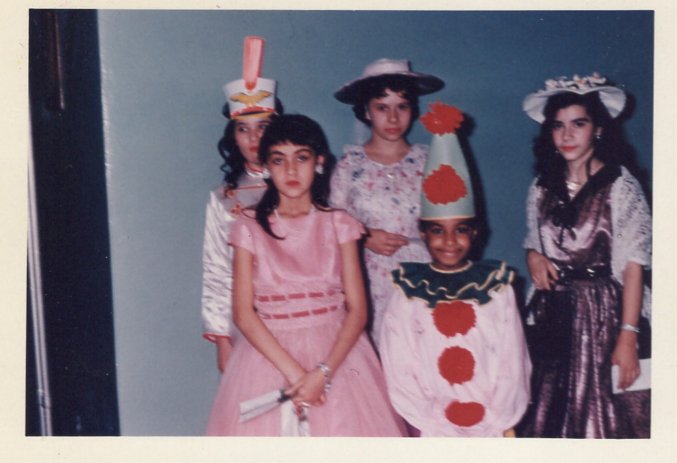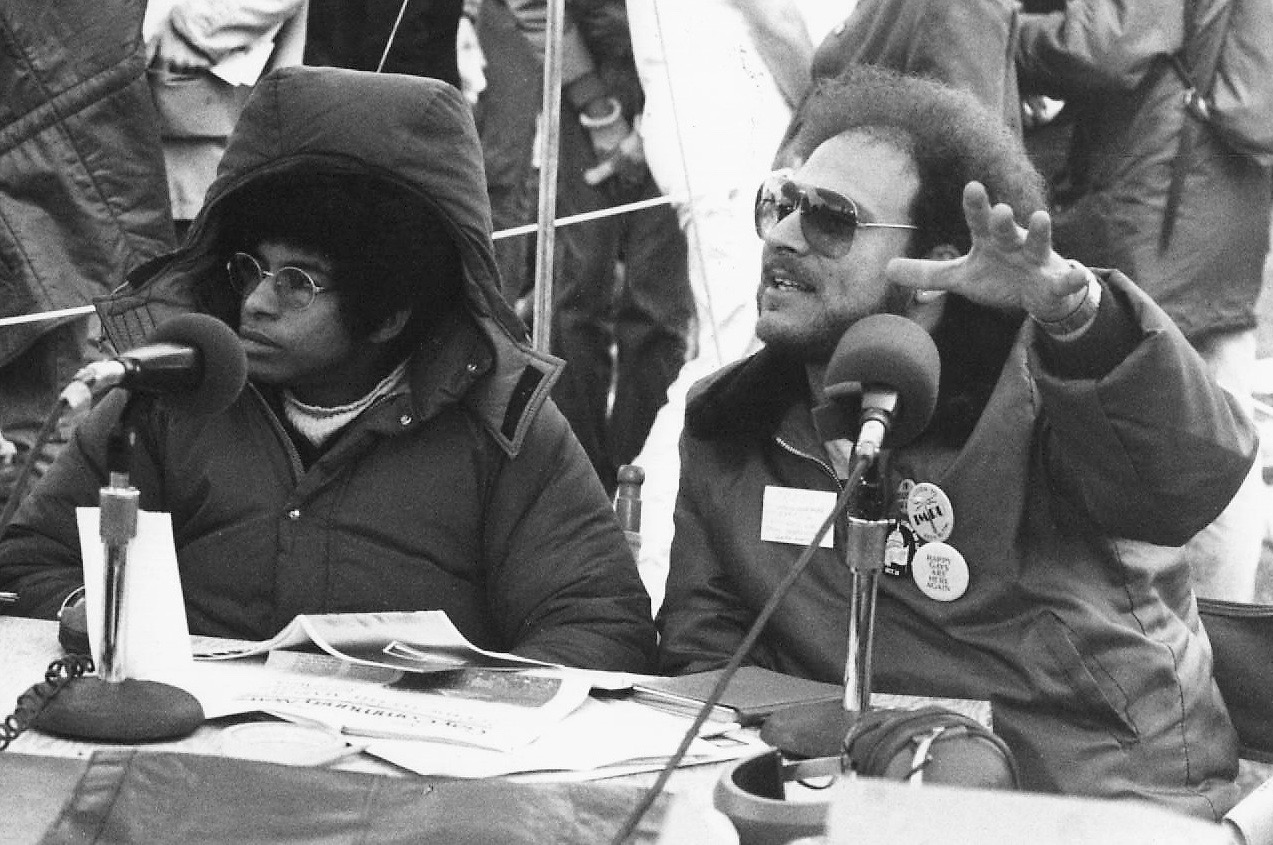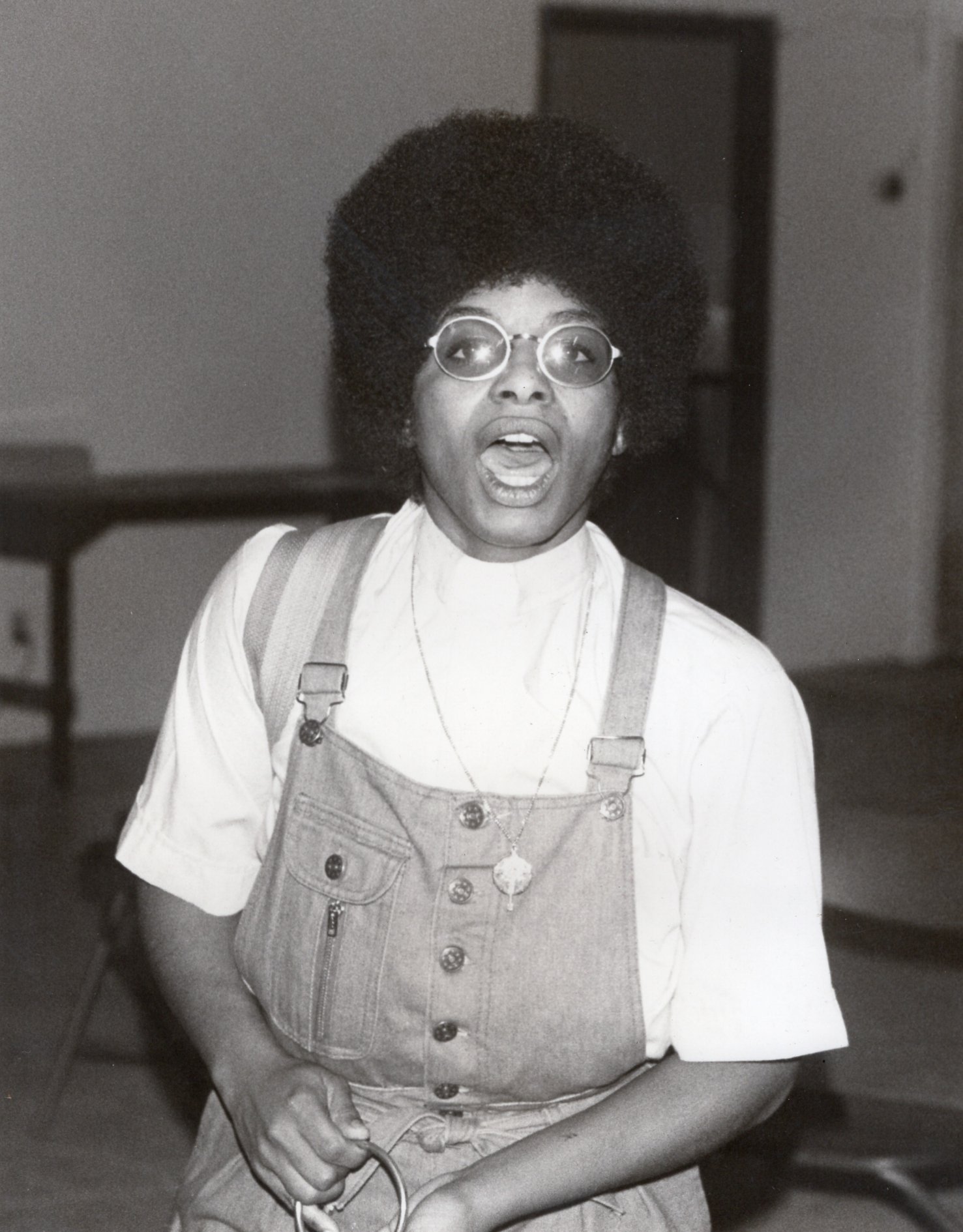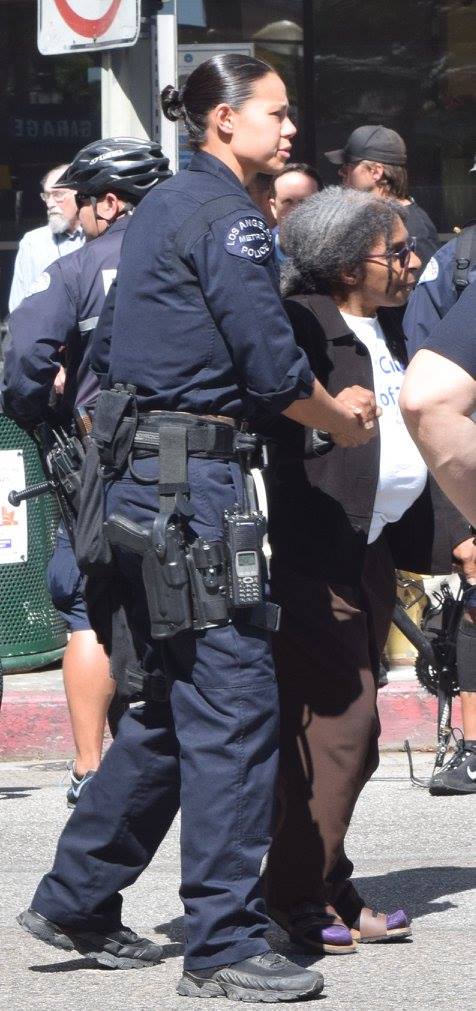Pastor Lucia Chappelle is a long-time activist whose work in the realms of LGBTQ+ scholarship and communications, as well as faith-based leadership, has been inspiring and transformative. She is a co-producer at This Way Out radio, an international gay and lesbian radio magazine; the Minister of Social Justice at the Founders Metropolitan Community Church in Los Angeles; a journalist, progressive activist, writer, and musician.
Chappelle was born in Washington, D.C. in 1953, but her family moved to Patterson, New Jersey when she was a toddler. Her parents, who were much older and from South Carolina, had a lot of old-fashioned Southern ways which had an impact on how her development. Her parents were Baptist and although they were not as involved in their church, she was interested in going to church from a young age. Starting at the age of 6, Lucia attended Sunday School at a nearby Presbyterian church. She found excitement in church activities such as the choir and eventually she was part of the Girl Scouts troop at an Episcopalian church. She also found strength and support in the church due to activism and rhetoric surrounding the Civil Rights Movement.
 At Halloween, age 7, P.S. 6 in Paterson, NJ
At Halloween, age 7, P.S. 6 in Paterson, NJ
Chappelle attended elementary school at Paterson School 6 (PS6), a public school. Due to overcrowding sometimes students were shuffled through and moved up grades in half years--with graduation twice a year. This moved Lucia ahead of her peers in school. Due to riots and generally tense circumstances, her parents did not want her to stay in public school after grammar school. The bishop of the Roman Catholic Diocese of Paterson at the time had public intention for integration in education. Chapelle, who was an academically skilled student, was admitted to the DePaul Catholic High School in Wayne, New Jersey at the age of 12, in 1965. She remembers being one of the two Black girls out of 252 strictly selected students in her first year at the school.
At this time the Chappelle family was planning to move to Teaneck, in the suburbs. Conscious of racial discrimination, she remembers the real estate agent assessing where they were moving from and then refusing to take their deposit for the house. Her parents, well-connected in the Republican Party as activists, filed a lawsuit with a prominent New Jersey politician as their attorney. This suit led to a settlement which allowed them to eventually purchase their home in 1966. Indicative of the racially tense times, Elston Howard, a famous Black baseball player who moved into the same town, was terrorized with a cross burning on his lawn.
As the only Protestant in her Catholic high school as well as being Black in a recently and barely integrated school, Chappelle learned to speak up and navigate difficult situations as she experienced dismissiveness from the administration. She was told by some priests that the rules of morality taught at the school applied to both Catholics and Pagans and she was not allowed to join mass as she was not baptized. As someone who grew up only in non-Catholic spaces, she had to grapple with the understanding the differences within different streams of Christianity. She continued attending a nearby Presbyterian church in Teaneck throughout high school where she had her confirmation and had her first communion. She was involved in the youth Sunday sermons and the Sunday choir even after her high school graduation in 1969--until she found a different church more aligned with her vision of faith.
At the age of 16, Chapelle moved across the country to start her undergraduate studies as a music major at Occidental College, a small liberal arts school, in Los Angeles, California. Amidst the protests against the Vietnam War, the immediate aftermath of Woodstock and the sweep of the Civil Rights Movement, she got involved with campus politics and on-the-ground activism. As someone who was always politically aware since her youth--from her parents’ involvement with the Republican party and her community canvassing work during high school to faith support by church leaders for the Civil Rights Movement and marching for the cause—it didn’t take long for her to become as student organizer alongside being an artist. She organized amongst various causes in college with her peers, including assisting with the creation of a gay community services center and found herself supported as she realized her own sexuality. However, she learned to stand and speak out strongly in the face of crackdowns on student activism, censorship, state-sanctioned violence such as the Kent State Massacre and experiences of racial discrimination by the LAPD.
As she was in college during an era of psychological exploration through means of psychedelics and philosophies as well as culture and politics feeding into each other, Chappelle also explored spiritualities and faith beliefs beyond her upbringing in Christianity. She continued her involvement in church-related activities, including the Occidental Gospel Choir. In the spring of her junior year, she began attending the Founders Metropolitan Community Church (MCC) after some of her gay friends invited her there. The MCC in LA had 150 congregants by 1969 and was publicly LGBTQ+ affirming. She felt that she found a place of faith and spirituality that prioritized collectiveness and activism. She appreciated that the church was intentional about having youth groups and connecting with the local LGBTQ+ community to be a resource and safety space during a time when it was frowned upon and often dismissed. She experienced a call to the ministry during her time at the Founders MCC and grew as a church leader even as he continued her college education. She changed her major to theater and graduated from Occidental with her Bachelors in Speech and Drama in 1973.
Chappelle continued working in the world of media, arts and politics after graduation. After volunteering with KPFK Pacifica Radio, she was hired to work there when she was 21 years old. She became immersed with KPFK Radio as a staff member and gained significant experience in radio production through working on some programming that focused on women, feminism and queer narratives. She was the first lesbian on the gay and lesbian show started in 1975, which was called IMRU. It is still on the air. Her work on the IMRU show included broadcasting the first National March on Washington for Lesbian and Gay Rights on October 14, 1979 out of the Washington D.C. station. Along with Greg Gordon, she also covered the second National March on Washington for Lesbian and Gay Rights on October 11, 1987. Chappelle then worked with Gordon to produce This Way Out radio and get broadcast on the NPR satellite. This Way Out went on air on April 1, 1988 and is still going. It aims to bring the voices of LGBTQ people to the airwaves telling their own stories to a global audience; to ensure the broadest availability to non-commercial outlets by providing the program free of charge; and to facilitate the exchange of material among locally-produced queer radio shows. She continued working at Pacifica Radio at the same time and by 1988 she was the program director at KPFK.
 Co-anchoring the 1979 Gay and Lesbian March on Washington with Greg Gordon.
Co-anchoring the 1979 Gay and Lesbian March on Washington with Greg Gordon.
Chappelle returned to school at the MCC Seminary, graduated as a licensed clergy in 1977 and worked in that capacity for the following ten years. She pastored All Saints MCC in West Hollywood for a short time, until the board decided that West Hollywood would benefit more from a pastor who was a white man. She then pastored at the West Bay MCC in Santa Monica. She wrote innovative worship materials and pastored at DeColores MCC, a lesbian feminist-womanist collective congregation in Los Angeles which embraced a feminist theology and proclamation of the gospel.
 Shortly after becoming clergy in 1977.
Shortly after becoming clergy in 1977.
Chappelle served as the Dean of MCC's seminary from [year? ] to [year? ] which, at the time, was named the Samaritan Theological Institute. She stepped away from heavy work with MCC for a bit but, in 2001, returned to the church to pursue justice and archive work. She maintained strong, personal connections with the women’s spirituality group, the People of African Descent conference and the deaf ministry. She, alongside other archivists at Founders MCC LA, have collected many years of documents and theological records existent in various media. She is writing a compilation oflesbian feminist liturgies and songs from DeColores as well her own memoirs. In more recent years, she seeks opportunities to continue her lifelong work as a queer journalist as well as an organizer in movements for justice. She engages not only as an activist, but also as a minister who brings healing and hope into the situations of uncertainty and hate as well as the gospel and journalistic truth.
 Arrested at 2016 protest for immigrant rights.
Arrested at 2016 protest for immigrant rights.
(This biographical statement written by Tarchithaa Sekharan from an interview with Lucia Chappelle and was edited by Chappelle.)
Biography Date: March 2025
“Rev. Lucia Chappelle | Profile”, LGBTQ Religious Archives Network, accessed February 28, 2026, https://lgbtqreligiousarchives.org/profiles/lucia-chappelle.